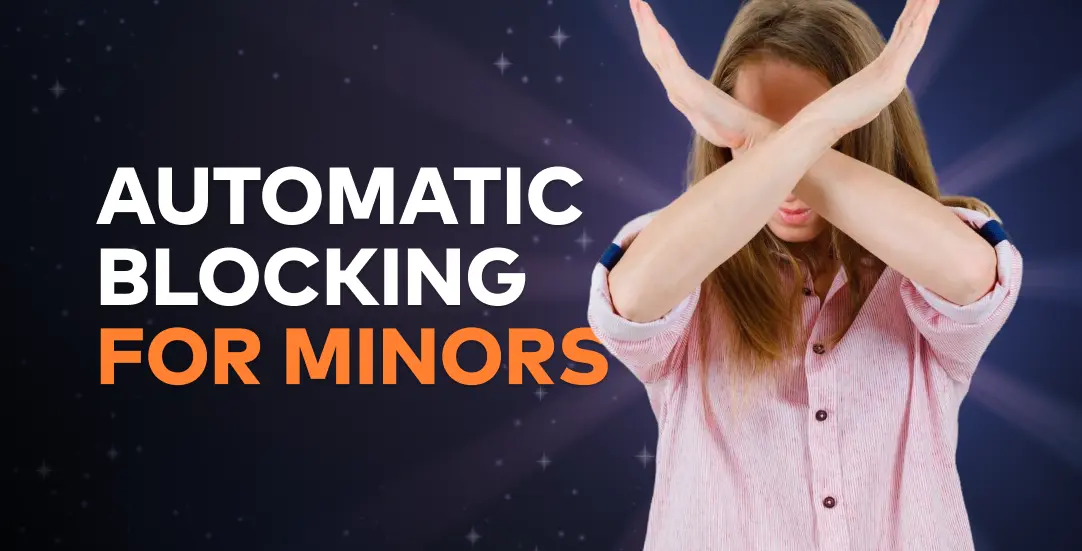Greece plans automatic ban on minors in online gambling

As policymakers intensify their focus on youth safety online, the proposed Greece Gambling Regulation for Minors stands out as a watershed moment. Greece is poised to become the first country in the European Union to automatically restrict minors from accessing online gambling, a move that could reset the baseline for age assurance across digital entertainment.
Local reports indicate the initiative could roll out as early as next month, with device-level restrictions powered by the state-run Kids Wallet app. The plan would automatically block under 18s from online gambling and tobacco retail sites, while access to social platforms would be restricted for users under 15, signaling a new era of proactive digital gatekeeping.
What Greece is proposing
The outline is striking in its simplicity and scope. Greece aims to implement automatic age-based restrictions across key digital risk areas, with online gambling and tobacco retail sites blocked for underage users and social media availability limited for those under 15. The country has held extensive talks with major technology companies, including Google, to ensure the model is robust and enforceable at scale.
The system will operate on devices through Kids Wallet, meaning enforcement does not depend on account logins. A European Commission delegation is scheduled to visit Athens to offer and receive technical guidance, aligning the effort with EU principles for protecting minors online, and the final green light rests with Prime Minister Kyriakos Mitsotakis, who has signaled willingness to proceed.
How Kids Wallet underpins the enforcement model
Kids Wallet is a government-run mobile application launched in May that verifies age and manages screen time on children’s devices. It integrates with Greece’s government services platform, which citizens already use for taxes and other official tasks, and it creates a verified digital identity for minors after parents confirm age with official documents.
Using online tax credentials, parents set up linked accounts, approve usage permissions, and can apply daily limits, providing an official layer of parental oversight. Parental consent is no longer required from age 15, a design choice that reflects the app’s role in establishing a minor’s digital identity while supporting a gradual transition to autonomy for older teens.
Critics note that the app’s use has been voluntary so far, yet the new proposal introduces automatic device-level blocks for restricted services. Unlike traditional age checks at the point of sign-up, the Kids Wallet model can filter content directly on devices, and under the plan it will block underage access even when a user has not logged in to a platform.
How the plan compares internationally
Greece’s approach is part of a broader global rethinking of youth access to high-risk digital services. Australia is set to enforce age restrictions on social media and online dating for under 16s from 10 October, citing the risks of algorithmic manipulation and exploitation. Where Australia emphasizes identity verification for accounts, Greece’s design centers on device-level controls through Kids Wallet, a difference that could prove significant in real-world enforcement.
Within Europe, the effort aligns with the Digital Services Act framework and with calls to strengthen protections for minors. Other countries including France, Spain, Denmark, and Italy are exploring similar restrictions, suggesting that the policy conversation is coalescing around clearer, enforceable age thresholds.
The EU conversation on youth protections
European Commission President Ursula von der Leyen recently endorsed a debate on a minimum age for social media access. She said that many EU countries believe the time has come for a digital majority age, and she supported that view, referencing her own experience as a parent and grandparent. She also argued that the design of popular apps attracts and addicts children with manipulative algorithms, ultimately oriented toward profit.
Many European Union countries believe the time has come for a digital majority age for access to social media. And I must tell you, as a mother of seven children, and grandmother of five, I share their view.
These apps are working as they are designed, to attract and addict children to manipulative algorithms that are ultimately geared, let us be frank, to return profits for the tech billionaires in Silicon Valley.
That political framing matters because it connects online gambling risks with well documented concerns about social platforms. Studies referenced in the debate suggest that algorithms on platforms such as TikTok mimic gambling reward mechanisms, a pattern that can fuel compulsive behaviors and affect attention, memory, and emotional regulation. The Greek proposal lands squarely in this cross current of technology design, public health, and market regulation.
What it means for iGaming operators and affiliates
For iGaming stakeholders, the headline implication is straightforward. If implemented, automatic device-level age restrictions would sharply reduce underage access to gambling content in Greece, and operators would need to assume that enforcement runs upstream of account creation. This shifts some risk management from websites and apps to the device layer, which could improve compliance consistency while changing the workflow for customer journeys.
Sustainable user acquisition would likely emphasize verified adult audiences from the outset, since the device filter aims to prevent minors from even reaching gambling destinations. Marketing teams and affiliates should expect tighter expectations about messaging and placement in contexts where minors are present, and compliance teams will want to map how Kids Wallet filtering interacts with on-site age gates and KYC processes, including customer communications when access is blocked at the device level.
From a product perspective, UX teams may need to prepare clearer explanations and support content for Greek users who encounter access limitations on devices associated with minors. While the specifics of implementation will become clearer with government guidance, this shift naturally elevates the importance of public education, parent resources, and frictionless help flows.
Technical and operational considerations to watch
Although final technical specifications are not yet public, ongoing discussions between Greek authorities and major tech firms point to a design that aims to be enforceable at scale. Operators can prepare by focusing on fundamentals that align with device-level age assurance and with expected EU guidance on protecting minors online.
- Audit touchpoints for age-sensitive content and ensure clear messaging for users in Greece,
- Strengthen collaboration with affiliates to reduce incidental exposure to minors and to elevate traffic quality,
- Plan customer support scripts for device-level blocks and clarify paths for users who reach help desks because of access restrictions.
Because a European Commission delegation will be in Athens to exchange technical guidance, stakeholders should anticipate refinements to best practices that reflect EU recommendations. The involvement of the Commission suggests that the Greek model could inform future regional approaches, especially where device-level tools can complement platform responsibilities.
Consumer protection and the cultural backdrop
The Greek initiative places gambling, social media, and tobacco retail in a single policy frame, prioritizing the reduction of known digital risk factors for children. This is consistent with growing public anxiety about addictive design and persistent exposure to age-inappropriate content, and it positions the state as an active steward of age assurance rather than a passive recipient of platform policies.
For parents, Kids Wallet offers a single control panel to verify ages and set boundaries, and for policymakers, it offers a scalable mechanism to implement a unified standard. The app’s integration with existing government services provides a formal identity anchor, and device-level enforcement offers a practical way to reduce the gaps that often appear between policy and implementation.
Market dynamics in a device-filtered environment
If automatic restrictions move forward, Greek iGaming traffic composition could change, with fewer accidental visits from underage users and a more explicit separation between adult and youth digital experiences. Operators should view this as an opportunity to align safer gambling messaging with a system that already aims to keep minors out, and to refine onboarding for adults who expect smoother verification and fewer false friction points.
Affiliates that tailor inventory and placements away from youth-heavy channels will likely be better positioned to maintain quality traffic. While the commercial effects will depend on timing and execution, the policy direction is clear. Policymakers intend to make underage access to gambling content significantly harder, and that clarity should guide strategy.
Why the device level matters
Age gates at registration are only as strong as the honesty of the user or the accuracy of platform checks. A device-controlled filter like Kids Wallet introduces a different layer, one that can block access before a sign-up attempt. For iGaming, this could reduce the burden on sites to detect minors post hoc, and it could streamline compliance workflows by filtering out a category of ineligible users earlier in the journey.
The comparison with Australia reinforces this distinction. Australia’s model focuses on identity verification tied to accounts, while Greece’s plan is to operate at the device level. Both are intended to limit youth exposure, yet the Greek approach suggests a vision where system-wide controls support platform responsibilities in tandem.
Legal and regulatory trajectory
The next few weeks are pivotal. Greece appears ready to move, pending a decision by Prime Minister Kyriakos Mitsotakis. The European Commission’s imminent visit for technical coordination, along with dialogues with major tech companies such as Google, indicates that the country is calibrating the policy for practical enforcement and regional consistency.
For the iGaming sector, that trajectory underscores the importance of early preparation. Clear compliance playbooks, channel discipline in marketing, and user support tailored to device-layer controls will all help minimize disruption once measures go live.
Key takeaways for the iGaming community
- Greece is preparing automatic device-level blocks on gambling access for minors,
- Kids Wallet will verify ages and filter content directly on devices,
- The plan aligns with EU conversations on a digital majority age and with DSA goals,
- Operators should prepare for upstream enforcement, refine messaging, and support users who encounter device-level blocks.
What happens next
The initiative could be implemented as early as next month. Until the Prime Minister confirms the final decision, stakeholders should monitor official communications, track guidance emerging from the European Commission’s visit to Athens, and adapt playbooks to reflect device-level enforcement. The policy’s core message is clear, protecting minors online is a priority, and the Greek model may be a preview of where the market is heading.





















